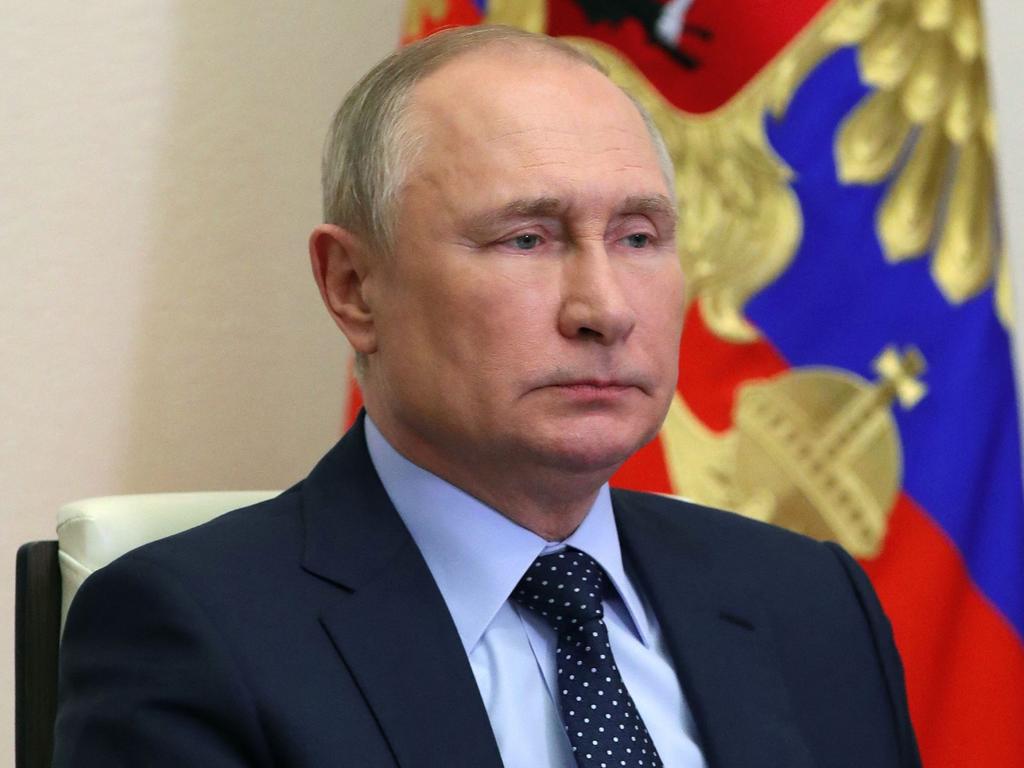Sinister message in Moscow teacher’s WhatsApp chat he refused to share with students
A Russian man is facing severe consequences from the Kremlin after opening a message in a group chat and refusing to share it.
A Russian man is facing severe consequences from the Kremlin after opening a message in a group chat and refusing to share it.
Andrei Shestakov, a Moscow-based school teacher, was shocked when he saw files in a WhatsApp group chat sent by Russian officials to be shared with students across the country.
Dozens of pages of documents and numerous videos contained material that he says was designed to spread a false narrative about the war in Ukraine — a conflict that has been raging since February.
Speaking to news agency Reuters about the messages — and what came after them — the 38-year-old said there were lesson plans describing Russian solders as heroes and linking Ukrainians to Nazis.
The lesson plans, which included videos from President Vladimir Putin himself, suggested the West was waging a cultural war that painted Russia unreasonably as villains.
“(Ukraine has carried out) attacks on the Russian language, our common history was falsified, war criminals and criminal groups from World War Two were turned into heroes,” one of documents read.
“We must not succumb to provocation.”

Shestakov made a decision to defy the official orders and instead tell pupils that they should not serve in the Russian military and that Putin’s government were in fact guilty of fascism — not Ukraine.
Reuters reports that in the days that followed he was summoned for questioning by local police, made to sign a statement about his comments in the classroom and fined roughly $AU570.
In Russia, speaking out against the official narrative is punishable by a jail term. That’s exactly what happened to another teacher who dared defy leaders’ orders.
Irina Gen, 55, was jailed after giving an anti-war speech to her students in the Russian city of Penza.
The Guardian reported that Gen “faces a long-term prison sentence” for what she said.
“I just wanted to broaden my students’ worldview,” Gen said.
“I hoped to break through the propaganda that is being fed to this country. But look where it got me.”
The students, just 13 and 14, asked her why Russian athletes were unable to compete in international competitions.
“Until Russia starts to behave in a civilised manner, the non-admission of Russian athletes to competitions will continue forever,” she said.
“I think that is correct. Russia wanted to reach Kyiv and overthrow the government. Ukraine is, in fact, a sovereign state, there is a sovereign government … We are living in a totalitarian regime. Any dissent is considered a crime.”
Her response was recorded by a student and found its way to authorities who — just as they did in Shestakov’s case — responded quickly.
She was called by local police and prosecutors have now opened a criminal case against her.
A new phase of Russia’s assault
The propaganda war is running simultaneously with the physical war being waged in Ukraine.
Russia launched a major offensive into eastern Ukraine on Monday, authorities in Kyiv said, as Moscow opened a new phase of its invasion after being thwarted in efforts to capture the capital.
In recent weeks, Russia’s military campaign has refocused on the eastern region of Donbas, which pro-Moscow separatists have partly controlled since 2014.
“We can now confirm that Russian troops have begun the battle for the Donbas, which they have been preparing for a long time,” Ukrainian President Volodymyr Zelensky said on Telegram late Monday.
“No matter how many Russian soldiers are brought here, we will fight. We will defend ourselves.” Ahead of the widely anticipated advance, Ukrainian authorities had urged people in Donbas to flee west to escape.
Control of Donbas would allow Moscow to create a southern corridor to the occupied Crimean peninsula.
In the south of Donbas, Russia continued its push to capture the besieged port city of Mariupol, where the last remaining Ukrainian forces have taken a final stand.
Russia on Monday also pounded targets across the country, killing at least seven people in the far western city of Lviv.
Lviv has largely been spared bombardment since Russia invaded on February 24, and the city and its surroundings had become a haven for those seeking safety from the war zone.
But “today we understood clearly that we don’t have any safe places in Ukraine. It’s very dangerous,” a bank employee who gave her name as Natalia told AFP after the strikes.
— with AFP




